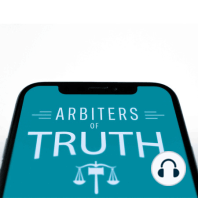45 min listen

How Open-Source Investigators are Documenting the War in Ukraine
How Open-Source Investigators are Documenting the War in Ukraine
ratings:
Length:
53 minutes
Released:
Mar 17, 2022
Format:
Podcast episode
Description
Open-source investigations—sometimes referred to as OSINT, or open-source intelligence—have been crucial to public understanding of the Russian invasion of Ukraine. An enormous number of researchers have devoted their time to sifting through social media posts, satellite images, and even Google Maps to track what’s happening in Ukraine and debunk false claims about the conflict. This week on Arbiters of Truth, our series on the online information ecosystem, we devoted the show to understanding how open-source investigations work and why they’re important. Evelyn Douek and Quinta Jurecic spoke to Nick Waters, the lead on Justice and Accountability at Bellingcat, one of the most prominent groups devoted to conducting these types of investigations. They talked about the crucial role played by open-source investigators in documenting the conflict in Syria—well before the war in Ukraine—and how the field has developed since its origins in the Arab Spring and the start of the Syrian Civil War. And Nick walked us through the mechanics of how open-source investigations actually happen, and how social media platforms have helped—and hindered—that work. Our GDPR privacy policy was updated on August 8, 2022. Visit acast.com/privacy for more information.
Released:
Mar 17, 2022
Format:
Podcast episode
Titles in the series (100)
Gabrielle Lim on the Life and Death of Malaysia's Anti-Fake News Act by Arbiters of Truth